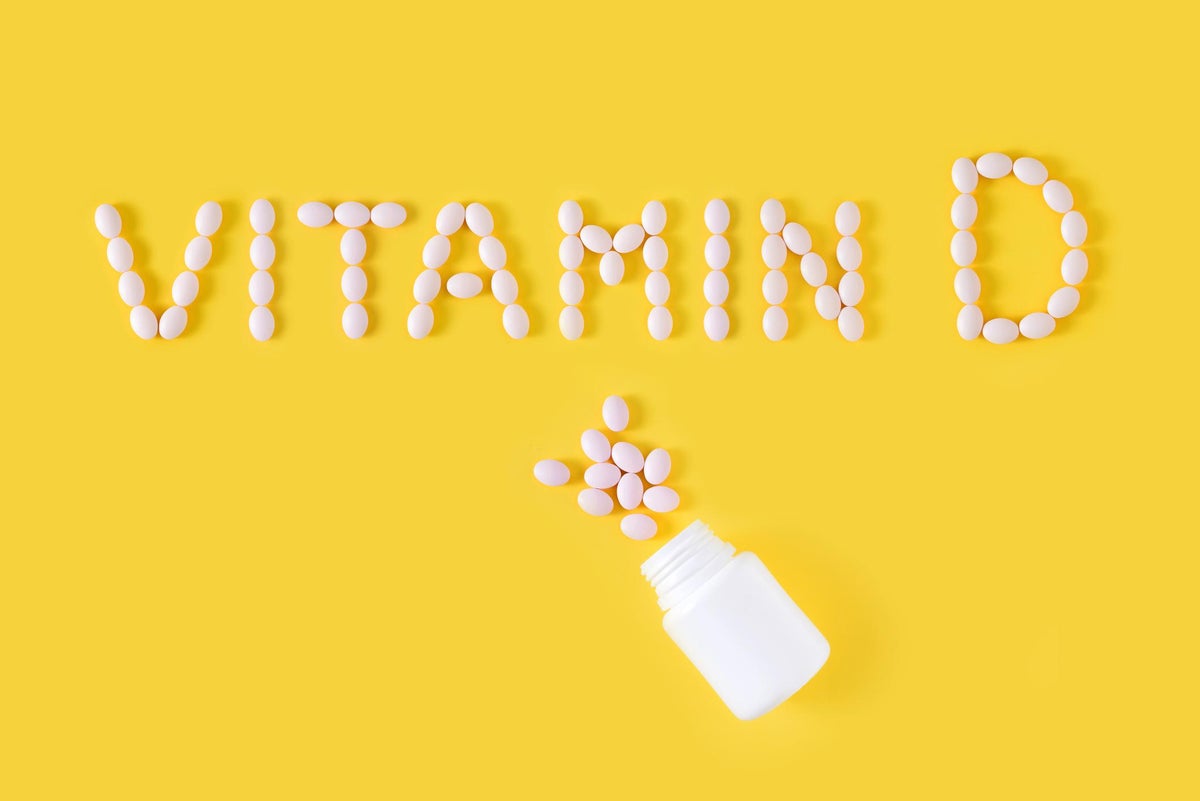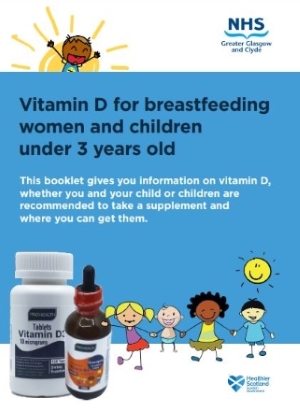Vitamin D Breastfeeding Nhs
My DS is almost 4 monthsso yup brand new advice. Breastfed babies from birth to 1 year of age should be given a daily supplement containing 85 to 10 micrograms 340 to 400 IU of vitamin D to make sure they get enough as infant formula is fortified with vitamin D formula-fed babies should not be given a vitamin D supplement until they are having less than 500ml about a pint of infant formula a day.

Coronavirus Do I Need To Start Taking Vitamin D During Lockdown The Independent The Independent
This supplement should be cholecalciferol vitamin D3 because of superior absorption unless a vegetable source such as ergocaliferol vitamin D2 is desired LOE IIA.

Vitamin d breastfeeding nhs. Vitamin D is required for the absorption and utilisation of calcium and phosphorous vital in maintaining musculoskeletal health. In April 2020 the NHS issued a statement based on recommendations from Public Health England PHE that we should all consider taking 10 mcgday vitamin D as a supplement to keep our bones and. It may be appropriate in patients with symptomatic vitamin D deficiency malabsorption or if poor compliance is suspected.
10µg for children aged one to four years. Its worth checking if youre entitled to Healthy Start food and vitamin vouchers. Thiazide diuretics such as Bendroflumethiazide may reduce the urinary excretion of calcium thereby increasing the risk of hypercalcaemia.
The two main forms are vitamin D 2 ergocalciferol and D 3 colecalciferol. Breastfed infants should be given a vitamin D supplement from one month of age if the mother did not take a vitamin D supplement throughout her pregnancy. Supplement use in specific population groups 2017 NICE CKS.
However it is found naturally in small amounts in. Published by All Wales Medicines Strategy Group AWMSG 01 November 2016. If serum vitamin D is 50 nmolL vitamin D replacement is NOT necessary unless there are specific clinical indications.
When is vitamin D prescribing appropriate. Vitamin D deficiency develops when there is inadequate exposure to sunlight or a lack of dietary sources. Some breakfast cereals soya and dairy products powdered.
In Ireland the recommendation is that all breastfed babies should be given a daily supplement containing 5 micrograms µg of vitamin D. Children from the age of 1 year and adults need 10 micrograms of vitamin D a day. 2 Vitamin D Monitoring.
Vitamin D deficiency in adults treatment and prevention 2017. Children from six months to five years are advised to take vitamin drops containing vitamin D daily. Postnatal and breastfeeding women take 400 IU daily table 1.
Hertfordshire Community NHS Trust Howard Court 14 Tewin Road Welwyn Garden City. It may be necessary to monitor vitamin D levels even if multivitamins are given. 85-10µg for infants under one year.
In addition breastfeeding mothers should take a daily Vitamin D supplement of 10 µg per day in fact as more and more. References Public Health Guideline 56. Infant formula milk is fortified with vitamin D so formula.
New recommendations July 2016 are that breastfed babies from birth to one year of age should be given a daily supplement containing 85 to 10mcg of vitamin D to make sure they get enough wwwnhsukConditionsvitamins-mineralsPagesVitamin-Daspx. 280 to 340 units daily. Her DS is a year old.
If your baby is only having breast milk no first infant formula top-ups you should give them a daily vitamin D supplement of 85 to 10mcg. Interestingly my friend who lives in Spain was told to give vitamin D from birth. NHS Choices Vitamin D PIL National Osteoporosis Society.
It is difficult to get enough vitamin D from food alone. 10µg for all pregnant and breastfeeding women. It is now recommended that everyone over one year of age should take a 10µgd vitamin D supplement daily and as a precaution breastfed babies from birth up to one year of age also be given a supplement of 85 to10µgd vitamin D per day.
Eligible women can obtain free vitamins from the NHS Healthy Start scheme. A microgram is 1000 times smaller than a milligram mg. The purpose of this guidance is to raise awareness of the recommendations on routine vitamin supplementation for babies children and pregnant and breastfeeding women including vitamin D.
Routine monitoring of serum vitamin D is usually unnecessary. Close monitoring and possibly a dose reduction of vitamin D is needed during concurrent use. Babies who are breastfed.
Oily fish both fresh and tinned such as salmon mackerel trout kippers and sardines eggs and meat. Breastfed babies get their vitamin D from their mothers breastmilk which is one reason why it is important for pregnant and breastfeeding mothers to have adequate vitamin D levels of their own. Babies up to the age of 1 year need 85 to 10 micrograms of vitamin D a day.
Some foods have vitamin D added to them including. If there is a need to monitor vitamin D levels repeat after 3-6 months on recommended replacement therapy. Recommendations on vitamin D supplementation for the whole population including new-born babies.
Maintenance vitamin D doses of up to 2000 International Unitsday. 7 Whilst on maintenance vitamin D doses recheck bone profile and vitamin D levels if symptoms. Min D Vitamin D National Guidelines for Vitamin D Babies Children and PregnantBreastfeeding WomenMarch to keep your bones and muscles Vitamin D regulates the amount of calcium and phosphate in the body which are needed to keep bones teeth and muscles healthy.
The breastfeeding infant should receive vitamin D supplementation shortly after birth in doses of 1020 μgday 400800 IUday LOE IB. Vitamin D while youre pregnant and breastfeeding to keep your bones healthy and to provide your baby with enough vitamin D to support them in their first few months. Updated PHE advice is detailed on NHS.
Vitamin D is made in the skin by the action of sunlight and this is the. NHS England guidance Sources of vitamin D in the UK The main natural source is from the action of sunlight on skin. However from mid-October to the beginning of April in the UK there is no ambient ultraviolet sunlight of the appropriate wavelength for skin synthesis of vitamin D.
I looked on the nhs pages when I was pregnant and it still said breastfeeding mothers should take vitamin D and breastfed infants from 6 months. If youre breastfeeding you should consider taking a vitamin D supplement containing 10mcg. PHE recommends that babies are exclusively breastfed until around 6.
Vitamin D supplementation should be discussed with all pregnant and breastfeeding women All pregnantbreastfeeding women should receive at least 400 unitsday. This includes pregnant and breastfeeding women and people at risk of vitamin D deficiency.

Nhs Forth Valley Early Years Nutrition

Nhsggc Vitamin D For Breastfeeding Women And Young Children
Posting Komentar untuk "Vitamin D Breastfeeding Nhs"